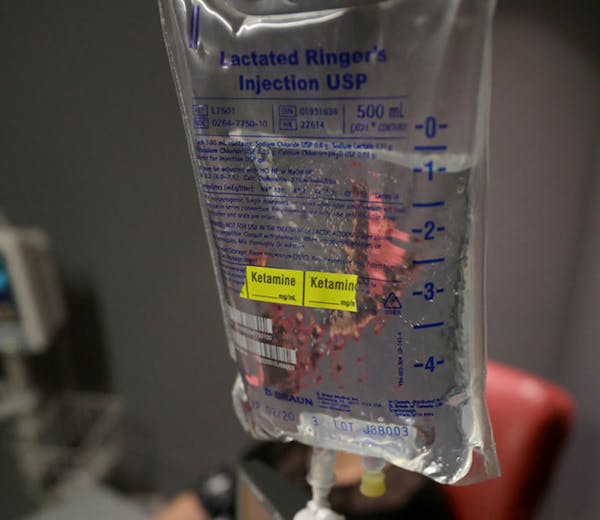The city of Minneapolis has hired an outside firm to investigate the leak of a draft report that detailed how police in some cases urged paramedics to sedate people with ketamine.
The St. Paul-based firm NeuVest will interview city employees to determine the extent of the breach, which will touch on all the staff members who had access to the draft report. The City Clerk's office said state law gives it the authority to determine if the leak of the draft report has resulted in any breach of private data, which under state law could expose someone to a misdemeanor charge.
"It's important for us to do this investigation, which is required by the law, and for us to educate people on how to effectively conduct oversight of the government," said Christian Rummelhoff, assistant city clerk and director of records and information management who is overseeing the investigation.
City Clerk Casey Carl said the leak investigation is the largest the city has launched since he was hired in 2010. Rummelhoff said he doesn't know how much the investigation would cost the city. He said a copy of the contract between NeuVest and city wasn't available Tuesday.
The leak investigation started about two weeks after the Star Tribune published a story on June 15 about the draft report, conducted by the city's Office of Police Conduct Review.
The draft report, which did not contain any names of people associated with ketamine incidents, had been circulated within City Hall.
Council Member Jeremiah Ellison said it's important to protect personal medical information, but he doesn't want people punished for providing information that's in the public interest. "I don't think it's right for the city to go pursuing people who would leak valuable information, especially something like the ketamine situation," he said.
Jane Kirtley, a professor of media ethics and law at the University of Minnesota, said a leak like the draft report on ketamine use is a "matter of legitimate public concern" that "outweighs whatever harm it is that the city is trying to claim."
"Leak investigations like this are usually prompted by embarrassment over the underlying matter that was leaked," Kirtley said. The city's move "chills whistleblowers from making disclosures that are matters of public interest."
The Star Tribune's reporting generated a public outcry that led Hennepin Healthcare to halt any study of ketamine use on patients without their consent. The city also hired former Acting U.S. Attorney General Sally Yates to investigate whether its police officers improperly influenced paramedics' decisions to use the drug.
"There's no time to waste in launching our independent review of the interaction between Minneapolis cops and medical personnel, and I am confident that Ms. Yates is the highest caliber candidate to lead a thorough investigation," Mayor Jacob Frey said a week after the story's publication.
In an interview Tuesday evening, Frey said he's not involved in the leak investigation. "We are focused very much on the investigation conducted by Sally Yates that gets to the bottom of interactions between Minneapolis police and EMS," he said.
Last week, the city's Office of Police Conduct Review released the final version of the report to the public and presented its findings to City Council members. Similar to the draft, the report detailed several occasions when Minneapolis police officers urged paramedics to sedate people with ketamine.
Last September, the U announced it had paid a law firm $74,400 to find out who leaked information to KSTP-TV about a sexual harassment investigation involving an associate athletic director. The U said later results were inconclusive.
Mukhtar M. Ibrahim • 612-673-4689

Want to share info with the Star Tribune? How to do it securely

'Safe recovery sites' would offer syringes, naloxone and more to people using drugs. The plan could be in peril.
New Minnesota GOP leaders seek peace with party's anti-establishment wing

Who is Republican Lisa Demuth, Minnesota's first House speaker of color?

